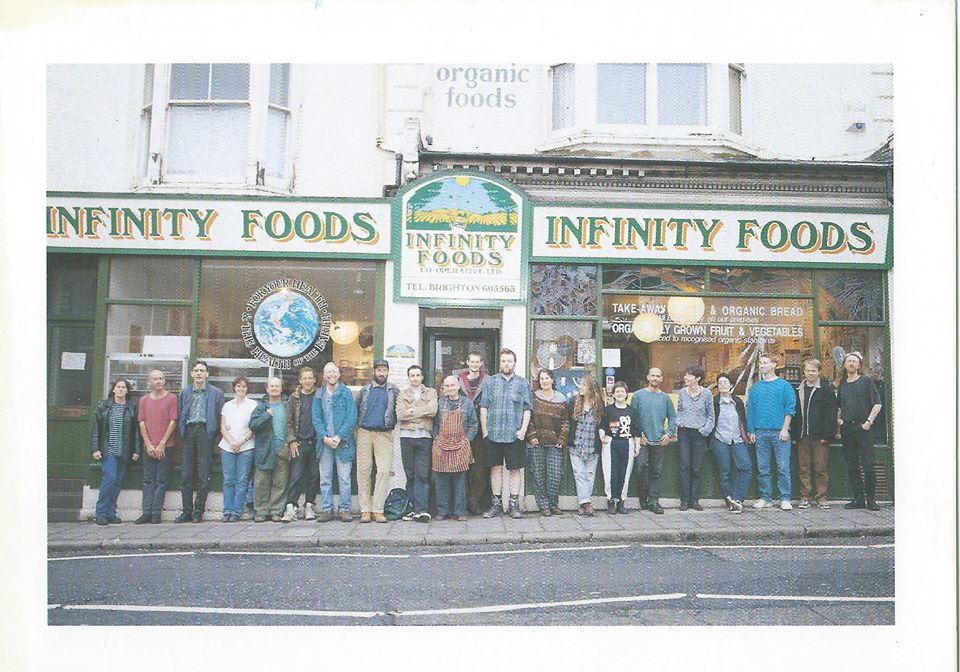Worker
Co-operative
Infinity Foods has been a worker co-operative since 1979. Simply defined, a worker co-operative is a business run by its workers for its workers. It is jointly owned and democratically run by its members. There are no outside shareholders or owners to satisfy.
The team back in the day!
This creates a more motivated and unified workforce where everyone feels involved in the successful running of the business. Each member has a vote and can give input via regular member meetings.
Ideas of equality and fairness are fundamental to the co-operative. We gauge the success of the business not only in terms of profit but also through environmental and social responsibility and involvement in our local community.
Cooperative Principles
The cooperative principles are guidelines by which cooperatives put their values into practice.
1. Voluntary and Open Membership
Cooperatives are voluntary organisations, open to all persons able to use their services and willing to accept the responsibilities of membership, without gender, social, racial, political or religious discrimination.
2. Democratic Member Control
Cooperatives are democratic organisations controlled by their members, who actively participate in setting their policies and making decisions. Men and women serving as elected representatives are accountable to the membership. In primary cooperatives, members have equal voting rights (one member, one vote) and cooperatives at other levels are also organised in a democratic manner.
3. Member Economic Participation
Members contribute equitably to, and democratically control, the capital of their cooperative. At least part of that capital is usually the common property of the cooperative. Members usually receive limited compensation, if any, on capital subscribed as a condition of membership. Members allocate surpluses for any or all of the following purposes: developing their cooperative, possibly by setting up reserves, part of which at least would be indivisible; benefiting members in proportion to their transactions with the cooperative, and supporting other activities approved by the membership.
4. Autonomy and Independence
Cooperatives are autonomous, self-help organisations controlled by their members. If they enter into agreements with other organisations, including governments, or raise capital from external sources, they do so on terms that ensure democratic control by their members and maintain their cooperative autonomy.
5. Education, Training, and Information
Co-operatives provide education and training for their members, elected representatives, managers, and employees so they can contribute effectively to the development of their co-operatives. They inform the general public – particularly young people and opinion leaders – about the nature and benefits of co-operation.
6. Cooperation among Cooperatives
Cooperatives serve their members most effectively and strengthen the cooperative movement by working together through local, national, regional and international structures.
7. Concern for Community
Cooperatives work for the sustainable development of their communities through policies approved by their members.
For further, more detailed information on the core values and principles of co-operatives of all kinds, please click on the links below:



